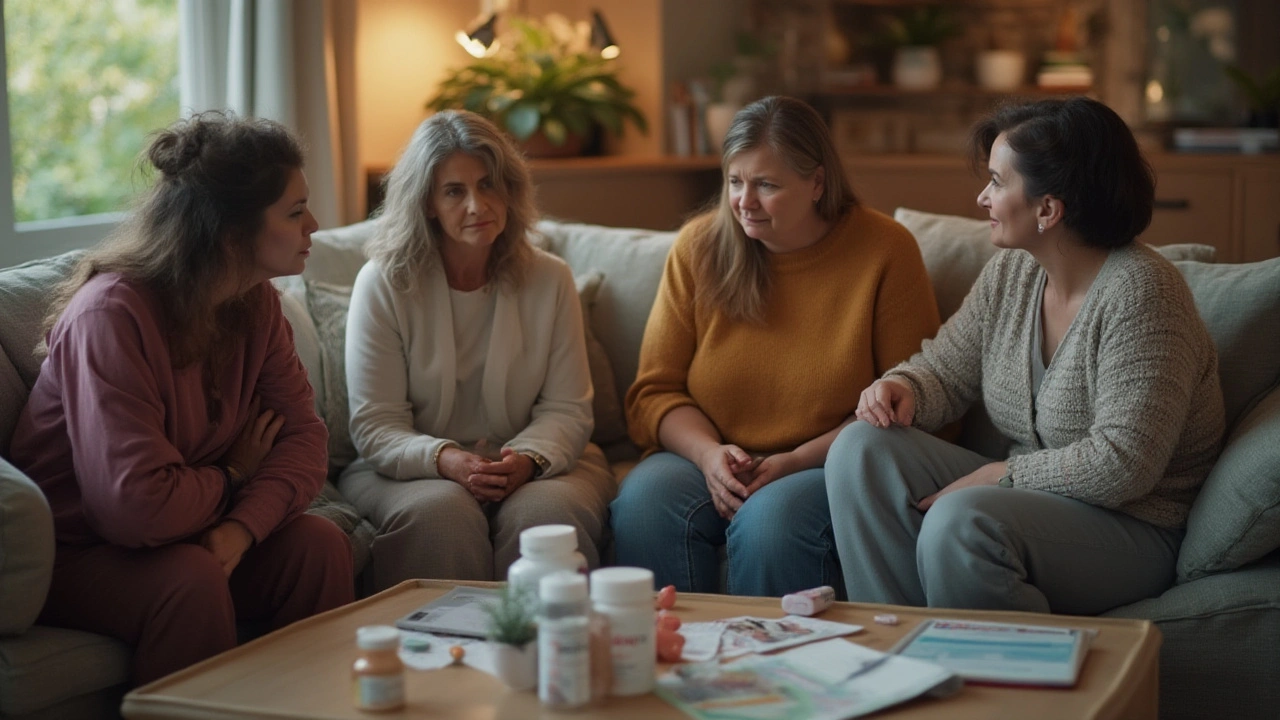Menopause Treatment: What Works, What Doesn’t, and Where to Start
The hot flashes sneak up. Sleep gets weird. Your mood seems all over the place. Sound familiar? That’s menopause for many women, and no, you don’t just have to grit your teeth and wait it out. There are ways to actually feel better, and it doesn’t have to be confusing or overwhelming.
First off, treatment isn’t one-size-fits-all. Some women breeze through menopause, but for others, the symptoms can make life tough—especially when work, family, and sanity are all on the line. So, what’s out there that actually helps? Let’s break it down plainly.
Hormone therapy—sometimes called HRT—is a biggie. It can make a world of difference for hot flashes, night sweats, and mood swings. It works by replacing some of the estrogen your body stops making. Modern hormone therapy comes in pills, patches, gels, and sometimes custom-mixed options from compounding pharmacies. If you’ve heard scary stories, know that many new studies show that hormone therapy can be safe for most healthy women under 60, especially when started near the beginning of menopause. It’s worth talking honestly with your doctor about your risks and options.
Of course, not everyone wants or needs hormones. Non-hormonal meds are getting better. Certain antidepressants (even if you’re not depressed), epilepsy meds, and blood pressure drugs can cool down those wild temperature swings. There’s also a newer drug, fezolinetant, that’s FDA-approved for hot flashes without touching your hormones at all.
Lifestyle tweaks aren’t useless. Simple stuff—layered clothing, cutting back on caffeine or spicy foods, and learning stress tricks—actually helps. Staying active, even if it’s just a brisk walk, improves sleep and mood. And if you’re struggling with weight gain (another lovely menopause guest), focusing on muscle-building exercise and balanced meals will help you fight back.
Now, custom (compounded) medications are picking up steam. For women who can’t use regular pharmacy pills or creams—maybe you need a specific dose or can’t tolerate an ingredient—a compounding pharmacy can mix just what you need. These aren’t miracle cures, but for some, they make treatment possible where nothing else has worked. Always use a licensed, reputable pharmacy, and keep your doctor in the loop, since oversight matters for safety.
Don’t overlook bone health. Estrogen drops can increase your risk of osteoporosis. Talk to your provider about screening and vitamin D, calcium, and exercise for strength. And if sex gets uncomfortable, low-dose vaginal estrogen or moisturizers often work wonders—don’t stay quiet if this is bothering you.
Menopause doesn’t have to be a mystery, and you don’t have to tough it out alone. Honest conversations, up-to-date info, and the right pharmacy partner can help you take charge and feel more like yourself again.
Menopause Medication: Pharmaceutical Treatments, Benefits, and Risks
- Lorcan Sterling
- 0 Comments
Explore how pharmaceuticals shape menopause care—what works, what doesn’t, and the unexpected facts behind menopause medications, costs, and real risks.
Read more

